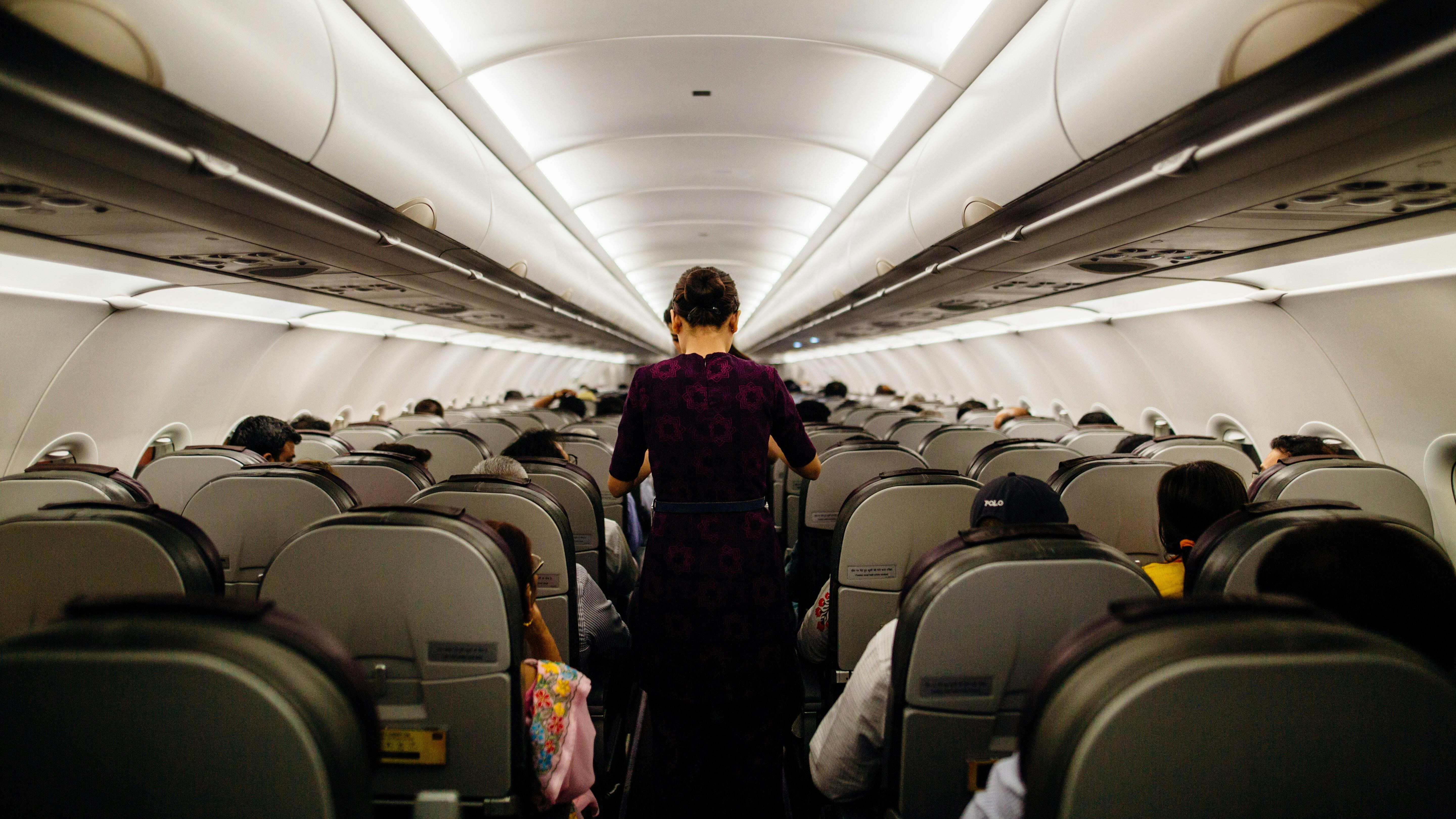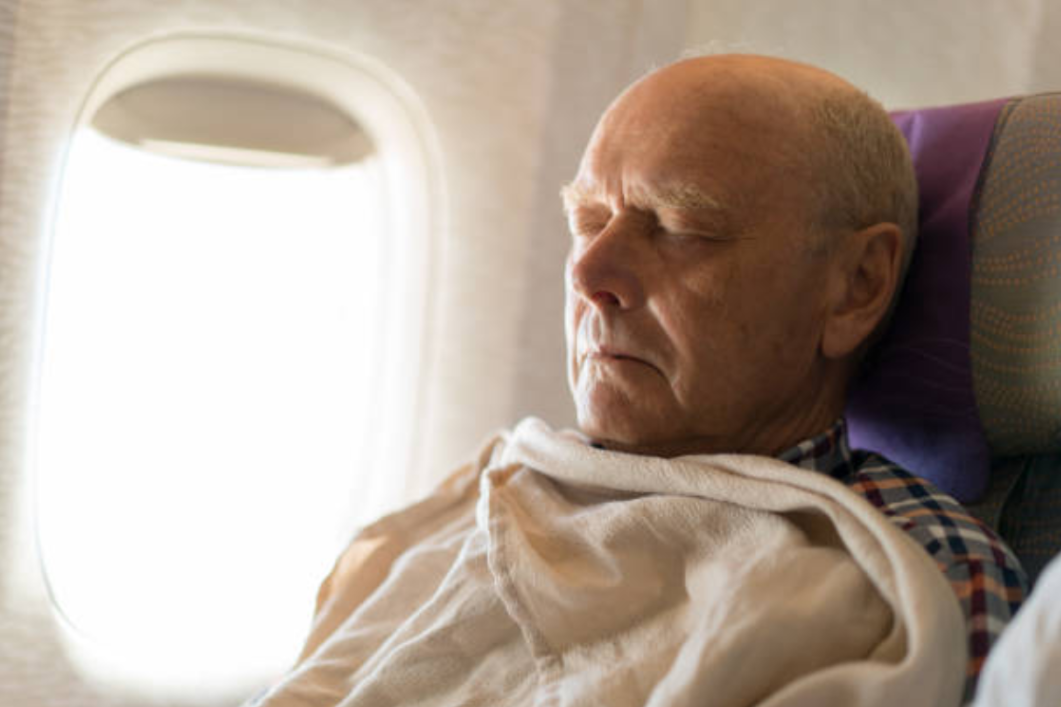
Death on a plane: What happens if someone dies on the plane?
Thursday, September 26, 2024
Flying can be unnerving and stressful in the best of cases; but what happens if a passenger dies during the flight? What if that passenger is in your row? Where do the flight attendants put the body? How often do people die on the plane, anyway? We know people have many questions about this particular experience — death on flight, and we are here to shed some light on this sometimes-taboo topic!
Do people actually die on a plane?
Yes, deaths on flights happen more frequently than people realize (Smith, 2022). But what exactly are the odds of dying on a plane due to a medical emergency?
How many people die on flights each year?
According to the American Journal of Emergency Medicine, in-flight medical emergencies occurred at a rate of 18.2 incidents per million passengers globally in 2021 (Jones & Lee, 2023). Most of these emergencies are managed and have positive outcomes. Still, the study found the mortality rate from in-flight medical emergencies to be 0.21 deaths per million passengers (Jones & Lee, 2023).

If we take that data and consider that in 2021, 2.2 billion travelled by plane, this means that there were approximately 460 deaths on planes that year. However, 2021 was a particular year for air travel due to the COVID-19 pandemic. In 2023, the number of airline passengers shot back up to pre-COVID levels, reaching 4.6 billion (Jennings, 2024).
What natural causes do people die from during flights?
The deaths that occur during flights are most often sudden, meaning the passenger did not have a previous condition that could have predisposed them to this happening (Smith, 2022). Some of the most common causes of in-flight deaths include:
- Pulmonary embolisms: This is when a blood clot gets stuck in one of the blood vessels in your lungs. This stops the blood flow to your lungs, typically manifesting as sharp chest pains and difficulty breathing (Doe, 2021). Did you know women who take birth control pills are more likely to suffer from blood clots on flights?
- Cardiac arrests: This happens when your heart suddenly stops beating (or stops beating efficiently). This usually manifests with chest pains, loss of consciousness, and abnormal breathing (Brown, 2022).
- Respiratory issues: This can be anything from airway blockages to asthma attacks or complications from chronic pulmonary diseases (Smith, 2022).
What happens if someone dies on a plane?
There are several protocols of what airlines and specifically flight crew must do if a passenger dies during a flight. However, it is also clear that these protocols vary a lot depending on the specific circumstances of both the death and the flight itself (Taylor, 2023). Some of the factors that need to be considered are the length of the flight, the type of aircraft, how full the flight is, etc.
Nevertheless, the first steps are always the same:
- Flight crew are always trained in CPR and will attempt to resuscitate the passenger (Brown, 2022).
- An announcement will be made looking for medical professionals on the flight who may be able to assist.
Every aircraft is equipped with certain emergency medicine equipment including EpiPens and defibrillators. Sometimes, these may successfully reanimate the passenger and save their life. Other times, when this is not enough, there are following steps that need to be taken (Doe, 2021).
What does the crew do if someone dies on the plane?
If the situation switches from emergency medicine to a confirmed death, the first thing the crew will do is record the time of death of the passenger (Taylor, 2023). After this, they will do what they can to move the body to a more secluded area. This could mean crew rest area, the forward galley area, or an empty row of seats. When this is not possible, and moving the passengers around the body is also not possible (i.e., the plane is full), the most likely scenario is that the plane would be diverted to the nearest available airport (Jones & Lee, 2023).

Can the plane continue to fly if there is a body onboard?
There have been cases where the plane keeps going to the final destination, despite there having been a dead body onboard (Jennings, 2024). For example, one account from Mr. Jennings recounts that his wife was flying from Sydney, Australia, to Los Angeles when a passenger two rows in front of her passed away unexpectedly during the third hour of the 14-hour flight. The man, who was flying with his wife, had taken two sleeping pills and the flight attendants were unable to wake him. Two doctors on board attempted to revive him using the defibrillator, but their efforts were unsuccessful. The flight crew then wrapped his body in plastic, secured it with duct tape, and moved it to the forward galley area, where the body remained until they reached the final destination 11 hours later.
What happens after landing?
After landing, the body will be handled by medical examiners or the applicable local authorities, who will also inform the deceased family (Taylor, 2023). The airline will also send a representative to do an in-person visit to the family, and sometimes offer counseling to the deceased’s loved ones and make travel arrangements for family members who may need to fly to reach the funeral or other services.
Are there legal repercussions for the airline?
Airlines could face serious damages legally, depending on the circumstances of the passenger’s death. First and foremost, after any death on a plane, a thorough investigation will be carried out to determine if all the proper protocols were followed (Doe, 2021). Sometimes, the airline could be held liable if it is determined that negligence played a role in the death, usually on behalf of the on-flight crew or if there was a lack of proper medical equipment. Non-compliance with the regulations and protocols could put the airline on the line against the authorities, as well as lawsuits from the deceased’s family (Smith, 2022).
This is what's happening in the case of Shimon Breuer, who a year ago died on a British Airways flight due to an asthma attack. In a recent turn of events, Breuer's family has filed a wrongful death lawsuit against the airline, claiming that the flight crew did not provide appropriate help to the victim — such as making an announcement in search of a medical professional on board (Rohlrich, 2024). The lawsuit is still ongoing.
Check out this article to find out more: "A young man died mid flight from an asthma attack. His family claims the airline 'failed' him" The Independent.
Do airlines compensate passengers if someone dies during the flight?
According to EU regulation, airlines are only legally obligated to compensate passengers if the disruption was caused by something in their control (Johnson, 2024). In these rare cases, if the death on the plane was sudden and properly handled by the crew, the airline does not have to compensate passengers. Usually, they will provide refunds or vouchers for future flights, depending on how severely other passengers were affected by the situation. Immediate family members of the deceased passenger can file claims through the insurance policies of the specific airline.
In which cases do passengers get compensation?
If your flight is unexpectedly cancelled, delayed, or overbooked and the issue was not caused by an extraordinary circumstance (i.e., ill or unruly passenger), there are high chances that passengers are entitled to compensation (Johnson, 2024).
If you have experienced a flight delay or cancellation in the last six years, claim your compensation today - it’s not too late!
Did you like the content of this blog? Check out our other content:
- What to do if my flight is delayed?
- Why are flights delayed?
- Flight Compensation
- How to maximise your vacation days in 2025
- From snacks to nail polish: everything you need to know about what you can bring on a plane
Sources:
- Brown, T. (2022). *Understanding in-flight medical emergencies: A comprehensive overview*. Journal of Aviation Medicine, 45(2), 115-130.
- Doe, J. (2021). *Death in the skies: What happens when a passenger dies on a plane?* Aviation Safety Review, 12(3), 45-56.
- Jennings, J. M. (2024). *How often do passengers die on airplane flights?* Retrieved from https://johnmjennings.com/how-often-do-passengers-die-on-airplane-flights/
- Johnson, R. (2024). *The impact of COVID-19 on air travel: A statistical analysis*. Journal of Air Transport Studies, 29(1), 32-48.
- Jones, A., & Lee, S. (2023). *In-flight medical emergencies: Frequency and outcomes*. American Journal of Emergency Medicine, 41(5), 221-228.
- Rohrlich, J. (2024). *A young man died mid-flight from an asthma attack. His family claims the airline ‘failed’ him. The Independent. https://www.independent.co.uk/news/world/americas/british-airways-american-airlines-died-asthma-attack-b2641985.html
- Smith, K. (2022). *The unspoken truth about flying: Death on a plane*. Travel and Health Journal, 8(4), 78-89.
- Taylor, L. (2023). *Airline protocols for in-flight emergencies: A guide for crew members*. Airline Safety Management, 19(2), 102-115.



Did you like this content ?
Thanks you made our day!
Help us be better!
Well received, thanks!